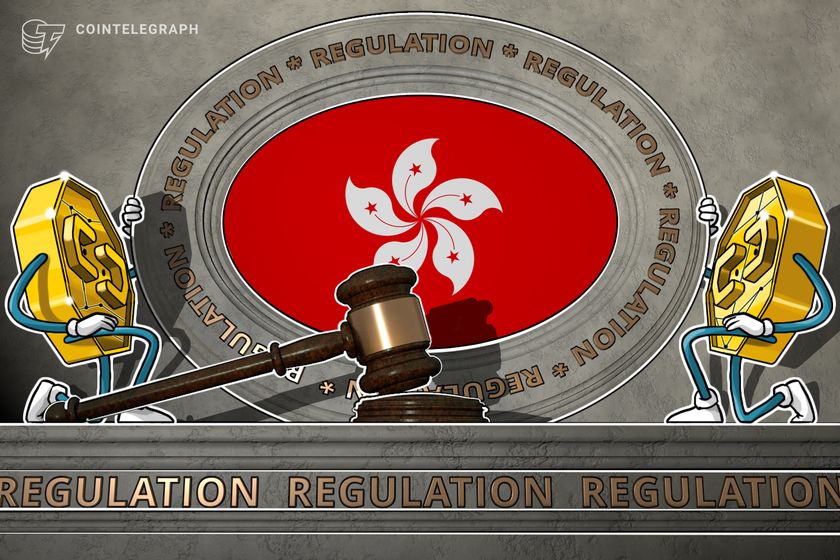

Hong Kong’s Securities and Futures Commission (SFC) has introduced new guidelines for crypto exchanges offering staking services.
In an April 7 announcement, the SFC announced new guidelines for crypto exchanges offering staking services and locally authorized funds exposed to digital assets involved in staking. The announcement follows recent remarks from Christina Choi, the SFC’s executive director of investment products, who said during a speech at the Hong Kong Web3 Festival:
“The SFC is committed to supporting Hong Kong’s Web3 journey.”
In its announcement, the regulator said it “recognizes the potential benefits of staking in enhancing the security of blockchain networks and allowing investors to earn yields.” Consequently, the latest guidance allows crypto exchanges to provide staking service offerings.
Related: Hong Kong investment firm’s shares surge 93% after buying just 1 Bitcoin
New rules for staking services
The new rules were communicated by the regulator in its latest circular sent to crypto exchanges under its jurisdiction. The SFC requires crypto exchanges to obtain written approval before offering staking services, retain control over staked virtual assets and not delegate custody to third parties.
Cryptocurrency exchanges engaged in staking must disclose all relevant risks and details concerning fees, minimum lock-up periods, unstaking processes, outage processes and custodial arrangements to their customers. Lastly, the providers must report on their staking activities to the SFC.
A similar circular was sent to SFC-regulated crypto fund operators, with the new rules being relevant to funds with more than 10% of their net asset value invested directly or indirectly in digital assets. Funds can only acquire virtual assets that are also directly available to the local public and rely on SFC-authorized platforms. Leveraged exposure is prohibited.
Funds can engage in staking if it is consistent with the fund’s objectives, while providing clear disclosure and robust controls. An investor notice and possibly shareholder approval may be required if staking implementation leads to material strategy or risk profile changes.
Hong Kong bets on Web3
During her recent speech, SFC’s Choi recognized that the Web3 space is still evolving and that “its full benefits will unfold in time, likely with twists and turns.” She cited the speculative industry of non-fungible tokens (NFTs) as a cautionary tale that justifies caution in the current regulatory approach:
“Therefore, rather than chasing every new spark, we believe in a pragmatic approach — strengthening the fundamentals and fostering a supportive ecosystem where Web3 can thrive in a sustainable manner.“
Related: Hong Kong remains an ‘open and vibrant market’ for crypto, says financial secretary
The official’s comments follow recent reports that cryptocurrency exchange Bybit announced the shutdown of its NFT marketplace as the market is running out of steam. The decision follows a similar decision by major NFT marketplace X2Y2 announced in late March.
The non-fungible token market is seeing a significant downturn. Daily NFT trading volume was over $18 million 364 days ago before Bybit’s announcements and stood at $5.34 million when the decision to shut down the platform was made public — a 70% fall.
When arguing why Web3 companies should choose Hong Kong as their headquarters, Choi pointed out that Hong Kong ranks third in the Global Financial Centres Index. Furthermore, local regulators have set clear guidelines for crypto industry firms, and Hong Kong provides easy access to Asian markets.
Global Financial Centres Index top 10. Source: LongFinance
In her closing statements, Choi said, “We stand today at the crossroads where traditional finance and the digital economy are converging to drive promising outcomes for our financial markets.” She added:
“The zero-to-one breakthrough has been made, and its future success would very much depend on how we nurture this convergence, that is, how we go from one to 100.“
Her statements echo Hong Kong’s financial technology sector, which has seen 250% growth since 2022. The SFC recently introduced a new roadmap to position the city as a global cryptocurrency hub.
The “ASPIRe” roadmap hopes to future-proof the local virtual asset ecosystem. It involves 12 initiatives spread across five broad categories, which include providing market access, optimizing compliance and frameworks and improving blockchain efficiency.
Magazine: Korea to lift corporate crypto ban, beware crypto mining HDs: Asia Express



